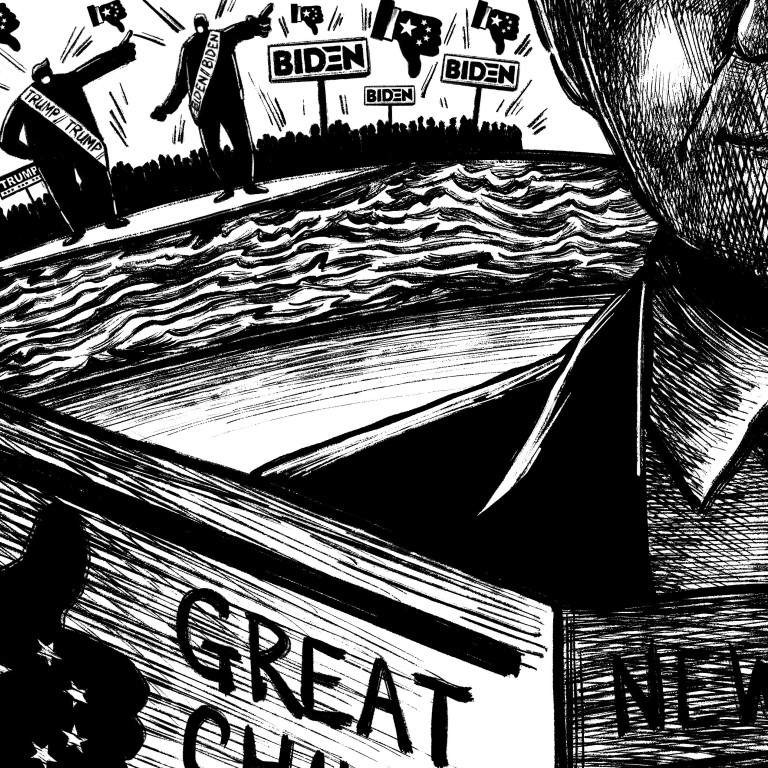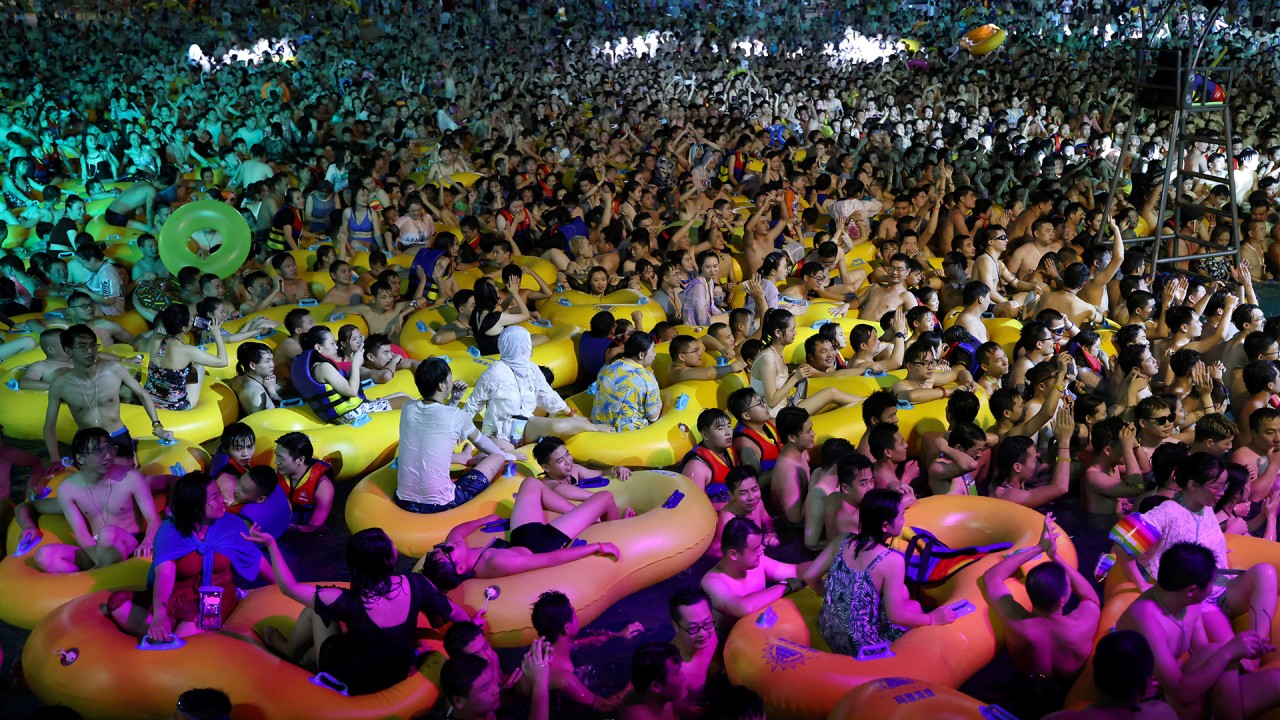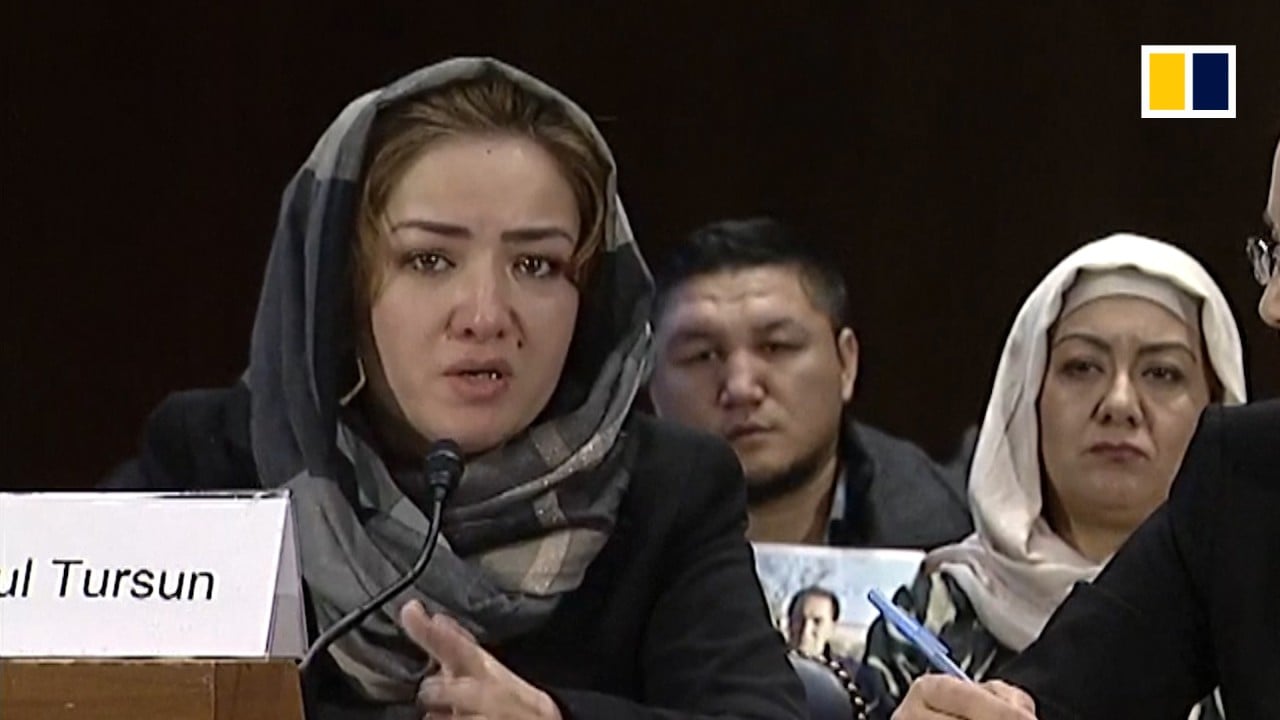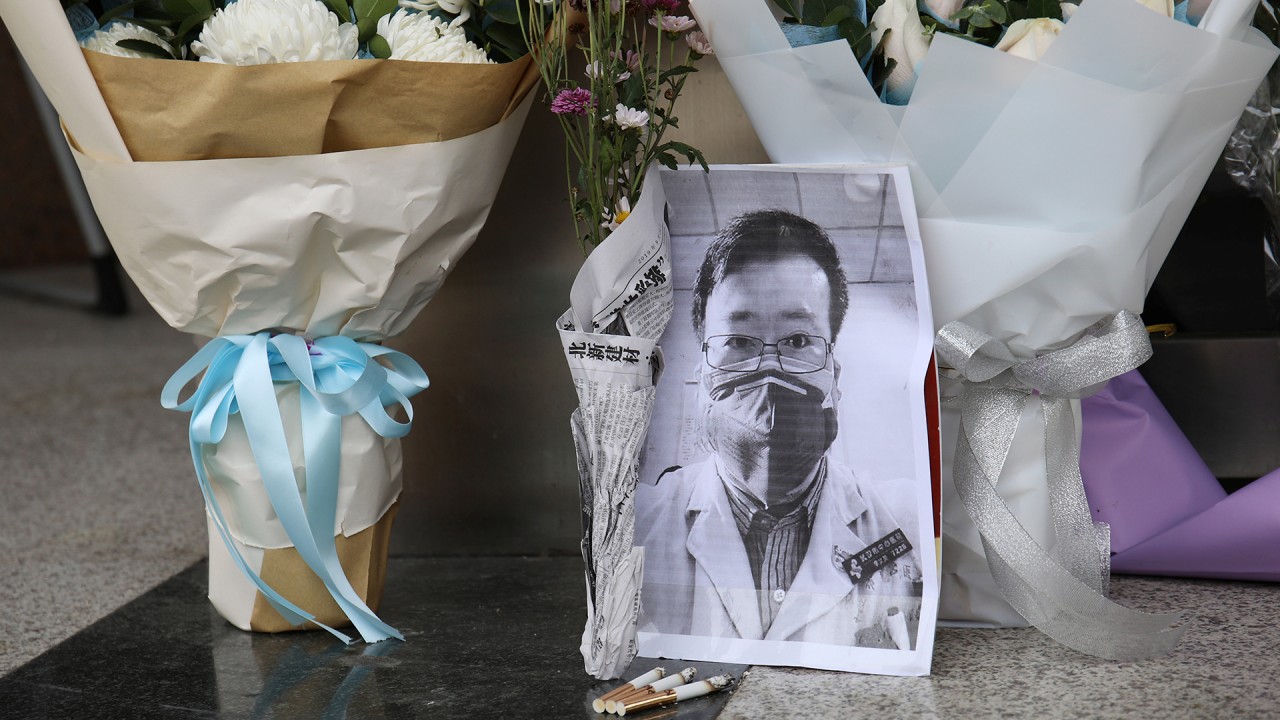
Does China’s one-party system blind it to why it’s a US election issue?
- Claim that coronavirus containment was a victory for Chinese governance implies a contrast with the US political system and its response
- But some of China’s actions have been poorly received internationally, attracting scepticism about its credibility as a leading world power
As voters in the United States prepare for the presidential election in November, the South China Morning Post is exploring the potential ramifications for China. The latest part of the US election series looks at whether China’s political system serves it as well abroad as it says it does at home.
“The advantages of socialism with Chinese characteristics,” he declared, “provide a fundamental guarantee that the country withstands risks and challenges, and enhances its governance efficiency.” It is proven, he said, by Covid-19.
Yet while China boasts that its one-party system allowed it to suppress a deadly virus by any means necessary, experts say that very system, entailing authoritarian rule, censorship and an iron grip on the flow of information, has prevented Beijing seizing the moment to rise from the pandemic as a credible world leader while Washington struggles.

03:07
Wuhan pool party shows China's ‘strategic victory’ over Covid-19, Beijing says
“The Chinese have told themselves a story about why American attitudes have soured towards China,” said Daniel Russel, a former assistant secretary of state who advised the then president Barack Obama on East Asia issues. “And in the story they tell themselves, it’s a function of things that have nothing to do with China.”
Experts believe the Chinese leadership grasps that outside public opinion of China has plummeted in the past year, but not why that shift in Washington has happened so dramatically, across party lines.
A lurch to the brink of a new cold war has been a consequence of China’s political system, particularly in the Xi era, with its control of news and information, and self-censorship of officials close to the centre of power, experts said.
“Not to the extent we see in North Korea,” Lynette Ong, a professor at the University of Toronto, said, but “it’s very distorted”.
Is it time for China to leash its Wolf Warrior diplomats?
Ong described information flowing into China as a ray of light shining through a prism: whatever people may be saying about China and Xi, censorship will ensure it comes out looking like a rainbow.
Even China’s diplomats, ordinarily on the front end of any engagement with the US, seem to be turning off many long-time China-watchers with their aggression online – including some who until recently had yearned for stronger ties with Beijing.

02:08
Uygur woman describes torture in China’s Xinjiang ‘vocational training’ camps
“That’s a sign of people who are around him, they’re not going up to him to say, ‘look, this may not be a good idea’,” said Ong, referring to Xi.
The information bubble prevents the country’s leaders seeing clearly and making good decisions, Ong said, adding that something similar may be happening in the White House.
“What’s going on between Donald Trump and his advisers very much mirrors Xi’s administration,” she said. “Both leaders are very insular. They surround themselves with a circle of sycophants, and people who dare to say something a little different get kicked out of the inner circle.”
At a White House news conference in September, Trump said he had in the preceding hours watched half a dozen Fox News and Fox Business Channel opinion shows – all of which tend to back him much as Chinese state media does its leaders.
“I think in both countries that’s actually bad for policymaking,” Ong said.
Coronavirus prompts fresh clampdown from Chinese authorities
In theory, without term limits or elections, Xi can oversee policy plans stretching decades ahead.
Beijing’s manufacturing plan “Made in China 2025” included the aspiration of being the world’s leader in artificial intelligence by 2030. Xi this year announced the China Standards 2035 technology plan and two years ago unveiled a long list of goals for China to reach by 2050.
Such long-term plans can feel utterly foreign in Washington, with its four-yearly presidential elections and priorities that sometimes seem to change by the hour.
But former officials with extensive experience of negotiating with China said that was not a disadvantage in their discussions.
“It’s always good to have new eyes looking at an issue,” said Charlene Barshefsky, who served as former president Bill Clinton’s trade representative and led the talks to bring China into the World Trade Organization.
“You’re aware of the clock ticking towards the end of an administration,” she said. But she added: “I was never under pressure to conclude something that I thought could be better later on.”

01:28
China abolishes presidential term limits allowing Xi Jinping to stay on past 2023
Evans Revere, a former state department official who negotiated with Beijing and Pyongyang over North Korea’s nuclear weapons programme in the late 1990s, added that counterparts had tried unsuccessfully to use America’s political system against it, slow-walking the talks until a new president came in.
“It was them trying to jam us,” he said. “Of course, what they ended up getting was something infinitely worse than anything they could’ve imagined.”
When Russel, a veteran diplomat, was sent to advise the president on the first day of the Obama administration in 2009, he said the building was “a ghost town”.
“Only a handful of civil servants or a few holdovers, career people,” he said, describing a scene unimaginable in China, where cadres spend decades rising through the ranks of one-party government.
“There’s a lot of reinventing wheels,” he said. “On the other hand, I would say that something that’s really struck me is that every new administration comes in with this fireball burst of new energy, and of confidence. ‘We’re gonna do it different, we’re gonna do it better. We’re not making any of the mistakes that our predecessors made.’”
As he has solidified his grip on power, Xi has purged China’s domestic security forces, removed political rivals in what Beijing says is an anti-corruption campaign, and overseen a crackdown on critics in academia.
China Communist Party critic Ren Zhiqiang gets 18 years for corruption
The longer Xi is in charge, observers say, the braver anyone would need to be to challenge the direction he is taking China.
“Because he does not have a safe and institutionalised way to exit power, he has to constantly consider the possibility of elite challenges and coups,” Erin Baggott Carter, a professor at the University of Southern California, said.
“Xi responds to elite dissatisfaction with more aggressive foreign policy designed to build a nationalist rally of support,” she said, warning that it could eventually lead to a dangerous clash with the US.
In addition, said Ali Wyne, a non-resident senior fellow at the Atlantic Council think tank in Washington, there is no guarantee that even an all-powerful leader will be able to see their plans through to the end.
“Even if China does have a long time horizon, its strategic foresight may not be as great as outside observers sometimes contend,” Wyne said.
He pointed to growing anger internationally about China’s policies.

03:27
Public mourning in China after death of coronavirus whistle-blower doctor Li Wenliang
As it proclaims its political system’s ability to deal with the pandemic while the US flails, at least one cause of tension with the US – the censorship and authoritarian control at that system’s heart – remains unchanged.
In Xi’s hour-long speech at the ceremony honouring medical experts who helped spare China an even greater health disaster, one particular doctor was not mentioned: Li Wenliang.
Who was Li Wenliang and how did he become a coronavirus ‘hero’
His name has been cited repeatedly in Washington as an example of Beijing’s harmful political overreach.
“What’s going on in China in the last six months, it’s a bit of a miracle,” Ong, from the University of Toronto, said.
“It’s not that China is doing that much better. It’s because the rest of the world is faring so badly in relative terms, particularly the United States.”
The other reports in the US election series can be found here.











